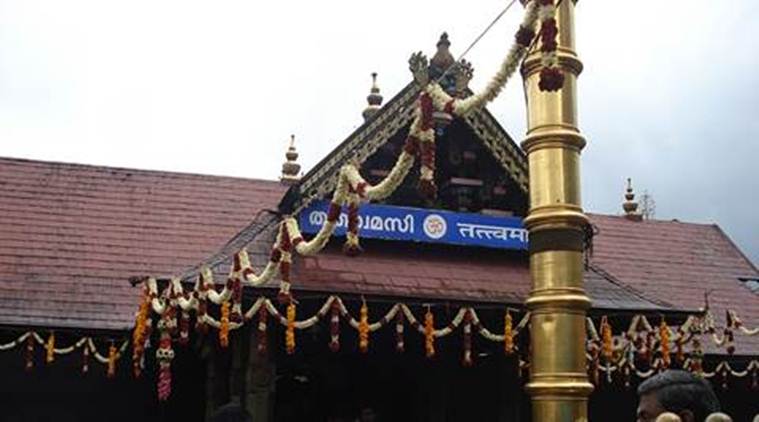 Defending the age restrictions on entry of women to the shrine, senior advocate A M Singhvi told a five-judge Constitution bench headed by CJI Dipak Misra that “there are millions of faiths and beliefs that may not fit into Constitutional morality”.
Defending the age restrictions on entry of women to the shrine, senior advocate A M Singhvi told a five-judge Constitution bench headed by CJI Dipak Misra that “there are millions of faiths and beliefs that may not fit into Constitutional morality”.
The Travancore Devaswom Board, which administers the Sabarimala Ayyappa temple in Kerala, told the Supreme Court on Tuesday that it may not be possible to judge the diverse traditions of India through the prism of Constitutional morality. It also cited the case of women in general not being allowed into mosques of the Sunni Muslim sect to remind the court that implications of its order would be widespread.
Defending the age restrictions on entry of women to the shrine, senior advocate A M Singhvi told a five-judge Constitution bench headed by CJI Dipak Misra that “there are millions of faiths and beliefs that may not fit into Constitutional morality”. Others on the bench were Justices A M Khanwilkar, R F Nariman, D Y Chandrachud and Indu Malhotra.
The hearing witnessed animated exchanges between Singhvi and the bench, with Justice Chandrachud describing the restrictions as “subjugation of a patriarchal society” and Singhvi retorting, “your lordship is imposing a subjective viewpoint”.
Singhvi told the bench that the restrictions in Sabarimala were not based on gender and the intention was not exclusion. The object, however, may be exclusion based on physiological reason, he submitted, explaining why only women below above the age of 10 and above 50 were allowed in it.
Justice Chandrachud said the question was whether this was Constitutionally valid. Singhvi replied that according to modern ethos, it may appear to be problematic. “It’s not modern ethos but Constitutional ethos,” said Justice Nariman. Justice Nariman referred to instances of women in the restricted age group visiting the shrine in the past. Joining issue, the CJI remarked “this itself shows there is no antiquity to the rules”. Added Justice Chandrachud, “maybe 50 years”. Singhvi said such occasional visits, if any, were the exception and not the rule. He also said the court hearing an Article 32 writ petition cannot decide on antiquity of the rules without ascertaining evidence in a trial.